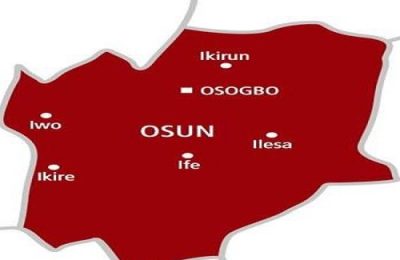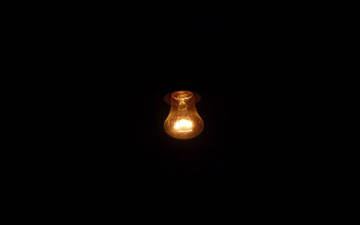IN the name of Allah, Most Gracious, Most Merciful.
Almighty Allah declares in Holy Qur’an, Nahl, 16:114-115, “So eat of the sustenance Which God has provided for you, lawful and good; And be grateful for the favours Of God, if it is He Whom ye serve. He has only forbidden you Dead meat, and blood, And the flesh of swine, and any (food) over which the name of other than God Has been invoked. But if one is forced by necessity, without willful disobedience, nor transgressing due limits, — Then God is Oft-Forgiving, Most Merciful.”
The Festival of Sacrifice (Eid-el-Adha) is here. The moment when millions of camels, cows, rams, cattle, sheep and other animals are killed by the faithful worldwide in giving thanks to the Almighty Allah is here. The 10th day of the lunar Islamic month of Dhul-Hijjah is here when Muslims worldwide slaughter oblations as symbol of piety and fear of Allah. The festival serves as a devotional course for Muslims to re-enact the episode when the life of Prophet Ismail was ransomed with a ram after his father, Prophet Ibrahim, wanted to fulfill Allah’s instruction (Qur’an 2:197; 37:102).

The festival is symbolic of the moment Allah bestowed favour, love and blessing on father, mother and son, and, of course, all faithful as Prophet Ibrahim is regarded as the father of faith (Qur’an 37:105). The Holy Qur’an 2:198 says, “It is no crime in you if ye seek of the bounty of your Lord (during Pilgrimage). Then when ye pour down from (Mount) Arafat celebrate the praises of God at the Sacred Monument and celebrate His praises as He has directed you even though before this ye went astray.”
Eid-l-Adha is celebrated annually as a rite of the hajj in memory of the total submission of father, mother and son to the will of Allah. Indeed, the sacrifice was demanded of both Prophet Ibrahim and Ismail. The Holy Qur’an 37:100-111 says, “(Abraham says), ‘O my Lord! Grant me A righteous (son)!’ So, We gave him The good news Of a boy ready To suffer and forbear. Then, when (the son) Reached (the age of) (Serious) work with him, He said: ‘O my son! I see in vision That I offer thee in sacrifice: Now see what is Thy view!’ (The son) said: ‘O my father! Do As thou art commanded: Thou will find me, If God so wills, one Practicing Patience and Constancy!’ So, when they had both Submitted their wills (to God), And he had laid him Prostrate on his forehead (For sacrifice), We called out to him, ‘O Abraham! Thou hast already fulfilled The vision!’ —Thus indeed Do We reward Those who do right. For this was obviously A trial— And We ransomed him with a momentous sacrifice: And We left (this blessing) For him among generations (To come) in later times: Peace and salutation To Abraham! Thus, indeed do We reward Those who do right. For he was one Of Our believing Servants.”
The history of Eid-el-Kabir is indeed a trial of the will of the father and the son. By way of trial, the father had the command conveyed to him in a vision to make sure that it was a real order. To make sure that his son and wife, Hajar, consented, he consulted the two of them. The duo readily agreed, and offered to stand true if the sacrifice was really required. The whole thing is symbolical; God does not require the flesh and blood of the animals being slaughtered, much less of human beings (Qur’an 22:37). God Almighty declares in Qur’an 22:37, “It is not their meat nor their blood, that reaches God: it is your piety That reaches Him: He Has thus made them subject to you, that ye may glorify God for His guidance to you: And proclaim the Good News To all who do right.”

But Allah requires the giving of our whole being to Him in service with fear and piety, the symbol of which is that we should give up something very dear to us, if duty requires that sacrifice Hence, the true sacrifice was not propitiation of higher powers, for Allah is One that must be worshipped alone without ascribing anything to Him. He does not delight in material things of flesh or blood, but a symbol of thanksgiving to God by sharing meat with the family, the poor, the needy and fellow men. The solemn pronouncement of God’s name over the sacrifice is an essential part of the rite (Qur’an 2:173; 5:3; 6:121; 16:115). The Qur’an Baqarah, 2:173 says, “He hath only forbidden you dead meat and blood and the flesh of swine and that on which any other name hath been invoked besides that of God but if one is forced by necessity without willful disobedience nor transgressing due limits then is he guiltless. For God is Oft-Forgiving Most Merciful.”

No one should suppose that meat or blood is acceptable to God. It was a pagan fancy that God could be appeased by blood sacrifice. But God does accept the offering of our hearts, and as a symbol of such offer, some visible institution is necessary. He has given us power over the brute creation, and permitted us to eat the meat, but only if we pronounce His name as a solemn act of taking life, for without this solemn invocation, we are apt to forget the sacredness of life. By the invocation, we are reminded that wanton cruelty is not in our thoughts, but only the need of food. Now if we further deny ourselves the greater part of the food (some theologians fix the proportion at three quarters or two-thirds) for the sake of our poorer brethren in solemn assembly in the precincts of the Haram (Sacred Territory), our symbolic act finds practical expression in benevolence, and that is the virtue sought to be taught. We should be grateful to God for His guidance in this matter, in which many people have gone wrong, and we should proclaim the true doctrine, so that virtue and charity may increase among men. So, the Eid Day is a day of peace and Thanksgiving; a day of forgiveness and moral victory; a day of good harvest and remarkable achievements; and a day of festive emembrance. Indeed, the Eid-el-Kabir is a day of Islam, a day of God.
The Festival of Sacrifice (Eid-l-Adha) actually instills in us the virtue of humility which is required before one can be receptive to God and which prepares the faithful to listen for the Message of God. It teaches us the fear of God, which is akin to love; touches the heart, and penetrates through the innermost being. The feast festival teaches us not to be afraid of anything in mortal life, as people of faith are required to take their trials patiently and go on in the cause of righteousness with constancy. This festival encourages us to pray fervently as it brings us in real communion with God, with a sense of confidence such as a faithful servant feels in the presence of a kind loving master. And of course, Eid-el-Kabir makes us give gratitude to God, as shown by practical acts of charity to all fellows and creatures.
It is important to note that the Eid prayer usually said before noon is very important for all Muslims. It has the merits of the daily prayers, and ensures the annual reunion of the Muslim Ummah. As on Fridays, every worshipper is expected to congregate with others at the praying ground with their best dresses. And the different households should move to and from the praying ground with takbeer, the glorification of Allah. It is every Muslim with means that is expected to offer an oblation after the Eid prayer. A ram, goat or sheep suffices for one household. A cow or camel suffices for seven different households. It is preferable to slaughter the animal of sacrifice on the Eid Day after prayers, i.e., 10th of Dhul-Hijjah. It may also be slaughtered on the 11th, 12th, and 13th of Dhul-Hijjah, when Muslim pilgrims will remain in Mina, to throw pebbles at the devil and slaughter rams. We are expected to eat the meat and feed the poor who are contented and the beggar.
The tradition of Prophet Muhammad (SAW) follows the dictates of Almighty Allah on the Festival of Sacrifice. Narrated A’ishah: “The Apostle of Allah (peace be upon him) ordered a horned ram with black legs, black belly and black round the eyes, and it was brought for him to sacrifice. He said: ‘A’ishah, get the knife.’ Then he said: ‘Sharpen it with a stone’. So, I did. Then he took the ram and placed it on the ground. He then said, In the name of Allah, accept it for Muhammad, Muhammad’s family and Muhammad’s people. Then he sacrificed it” (Sahih Bukhari and Muslim).
Another Hadith narrated by Abdullah ibn Amr ibn al-’As stated that Prophet Muhammad (peace be upon him) said: “I have been commanded to celebrate festival (‘Id) on the day of sacrifice, which Allah, Most High, has appointed for this community. A man said: If I do not find except a she-goat or a she-camel borrowed for milk or other benefits, should I sacrifice it? He said: No, but you should clip your hair, and nails, trim your moustaches, and shave your pubes. This is all your sacrifice in the eyes of Allah, Most High” (Sahih Bukhari and Muslim).
May Allah grant us the resources and the piety to celebrate the Festival of Sacrifice.
Read Also: SAHCO Chairman promises increased profitability, dividends for 2024








